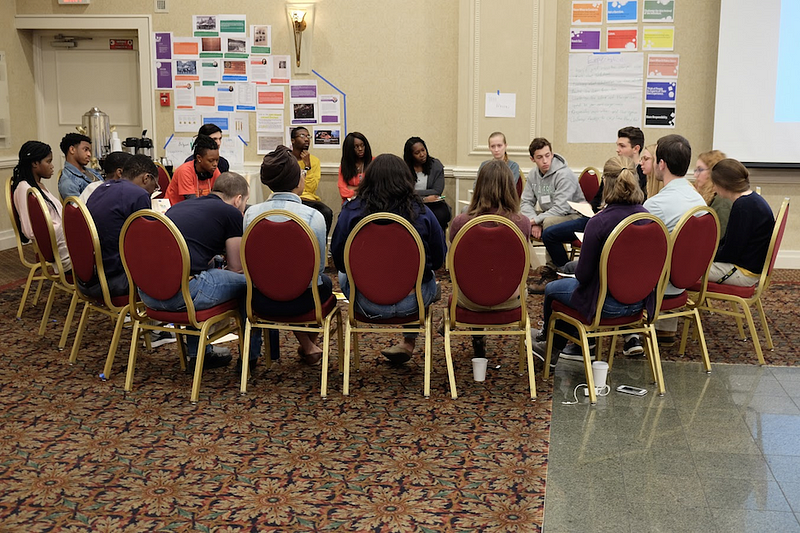
Photo Courtesy of Claire Inzerillo ’21
During the PossePlus Retreat (PPR), we were asked to get into groups with the race we most identified with. We were then asked to create sociograms of our interactions on campus with other racial groups. When asked, people within other racial groups were able to complete their sociograms, where as I had trouble even getting started. As part of the white majority on campus, I am not consistently forced to identify with a race or associate myself with a group. Instead I am allowed the privilege to see myself as an individual defined by other parts of my being. Minorities on this campus are not given the same opportunity.
Although discussing race can be extremely uncomfortable, the impact of race is real and runs deep. If we can begin to understand where we stand in relation to the world around us we can begin to connect better with ourselves and others. In addition, once we own our position, we can begin to better understand the places to which others are relegated. PPR put into practice the idea that conversation and interpersonal relationships are what can help us build empathy and see outside of ourselves. We must allow others to show us who they are rather than define the identity of others based on our own derived concept. As we begin to speak to each other, we begin to live.
Without this conversation, fear and misunderstanding persists on both sides. While education and the development of institutional action plans can help create frameworks for abstract notions of fairness, it is emotional connection, empathy, and hope that ultimately generates the flesh and blood of unity and community. As the majority, many of us already enjoy this feeling. So then how do we extend it?
We need more widespread education on race and its effects. The enacted diversity requirement and a proposed course on “whiteness” both work towards this goal. Continual and wide participation in conversation is also a necessity. This could be implemented early on if the comradery developed during orientation trips was used as a stepping zone into deeper topics of conversation. Topics such as race should be discussed during the later parts of orientation and throughout the first year. These group conversations would be more influential in creating community and understanding than having someone speak to us about it. Finally, action is necessary. To start, all facets of the community should invite others to engage not only as onlookers or outsiders, but as participants within each of our respective “groups”, clubs, etc. What first takes root in the soul through listening to one another develops into empathy that inspires intellectual thought in the mind, all combining as the words that come out of our mouths eventually move into our bones as we begin to not only breathe but to walk our change.
